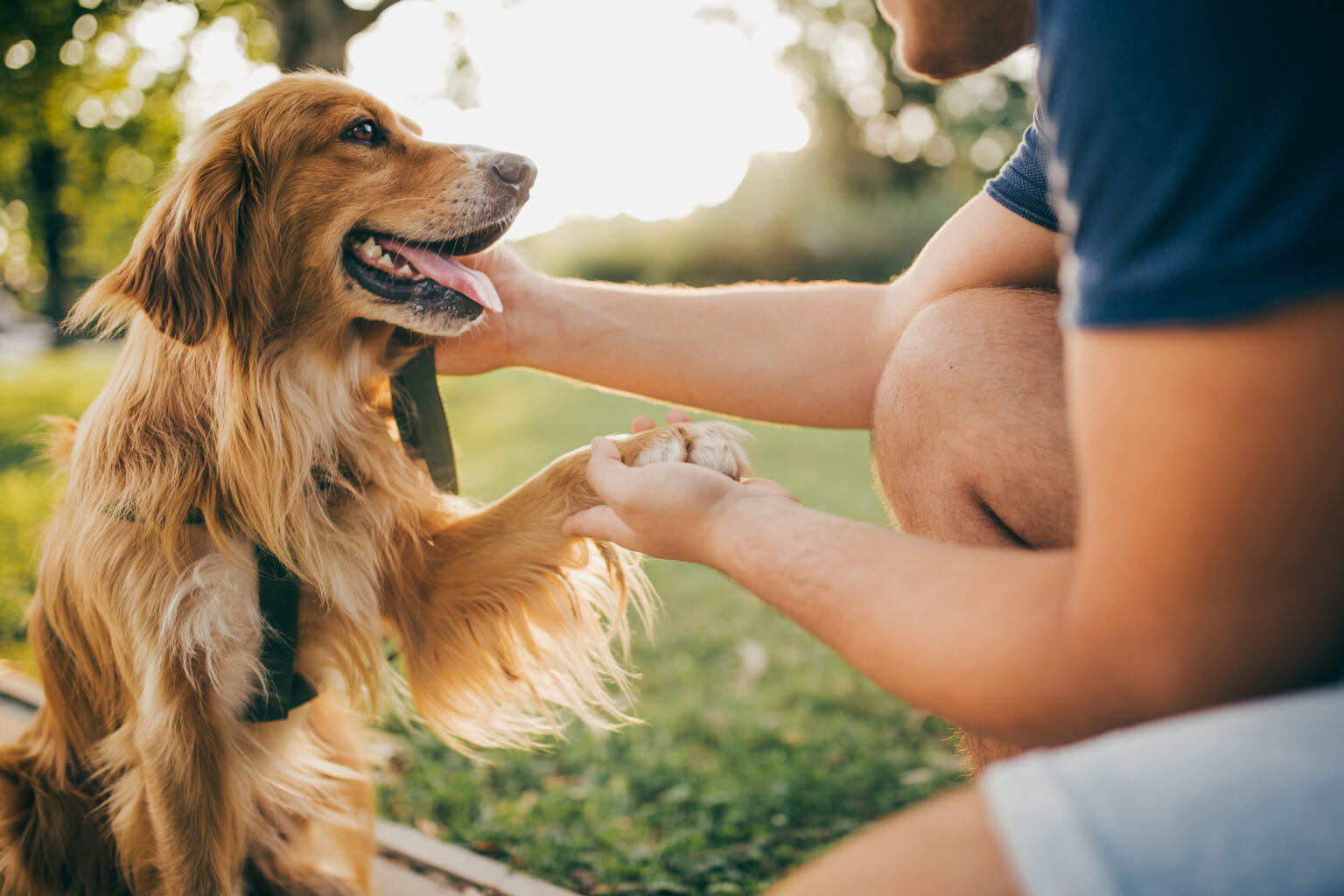Stiff joints in dogs is a common issue facing our canine companions. But did you know that dog joint problems can occur at any age? We spoke to our vet to find out when and how to give your dog supplements to care for their joints – from growing puppies to senior dogs.
What are the symptoms of arthritis in dogs?
It’s important to be aware of the signs of arthritis (joint inflammation) resulting in stiff joints in dogs in case they need extra support. If you do spot any, you should consult with your vet. They’ll be able to determine what’s going on, suggest ways in which you can modify your dog’s diet and routine, and prescribe them any necessary joint tablets for dogs – such as anti-inflammatories, painkillers, and supplements. Symptoms to look out for include:
- Lagging behind on dog walks
- Reluctance to walk, jump, and play with their dog toys
- Sleeping more
- Difficulty eating and reduced appetite
- Pacing or struggling to settle, as well as get up from their dog bed after resting
- Panting, even when not exercising
Who can dog joint problems affect?
All sizes, breeds, and ages can be affected by dog joint pain. Although arthritis is seen more commonly in some breeds, joint pain can also be due to an injury or incorrect diet. Be sure to keep a close eye on Labradors, Old English Sheepdogs, Golden Retrievers, Rottweilers, German Shepherds, Alaskan Malamutes, Dachshunds, Newfoundlands, Great Danes, Saint Bernards, Samoyeds, and Mastiffs.
Puppies
Looking after their growing joints is a crucial part of caring for a puppy – and puppy food is always the first step. Different breeds should also grow at different rates to allow their bones and joints to form correctly. If you’re unsure about which food and how much to feed, you can always ask your vet or vet nurse.
YuMove Young & Active can also help to support your puppy’s healthy joints. The general rule is that your puppy should be taken for walks up to twice a day and stick to a ‘5-minutes-per-month’ rule e.g. 10 minutes for a 2-month-old puppy, 15 minutes for 3 months, etc. Jumping isn’t a good idea for dogs that are under 12 months old, as this may affect their growth plates and lead to dog joint problems. Rough play with older or larger dogs should also be restricted to avoid accidental injuries.
![]() Athletic dogs
Athletic dogs
High-impact exercise and activities, such as CaniCross, Agility, or Flyball, can lead to injuries and dog joint swelling and so it’s vital that you support your dog’s joints wherever you can. The Kennel Club only allows dogs that are older than 18 months to enter agility competitions, which is a good indicator to determine how much exercise your pup should be participating in – doing too much too soon may cause dog joint problems.
If you like to go running with your dog, Halti leads will come in handy. Try adding YuMove joint supplement for dogs to your dog’s diet to support their joints on a daily basis.
![]() Senior dogs
Senior dogs
There are a variety of options when it comes to dog arthritis or joint pain relief in dogs that are aging. Whatever you can do to keep your older dog active – without overdoing it – is a great way to support their aging joints and maintain their muscles that surround their joints. They may prefer to take a slower pace than they once used to, but daily dog walks and exercise is a vital joint aid for dogs.
Senior dogs should also be on a signs of arthritis in dogs, your vet should be your first port of call to make sure everything is okay. They may point you towards dog arthritis supplements, amongst other things.
Our articles are not a replacement for face-to-face vet advice. It’s important to consult with your vet on a regular basis to raise any pet concerns that you may have.



